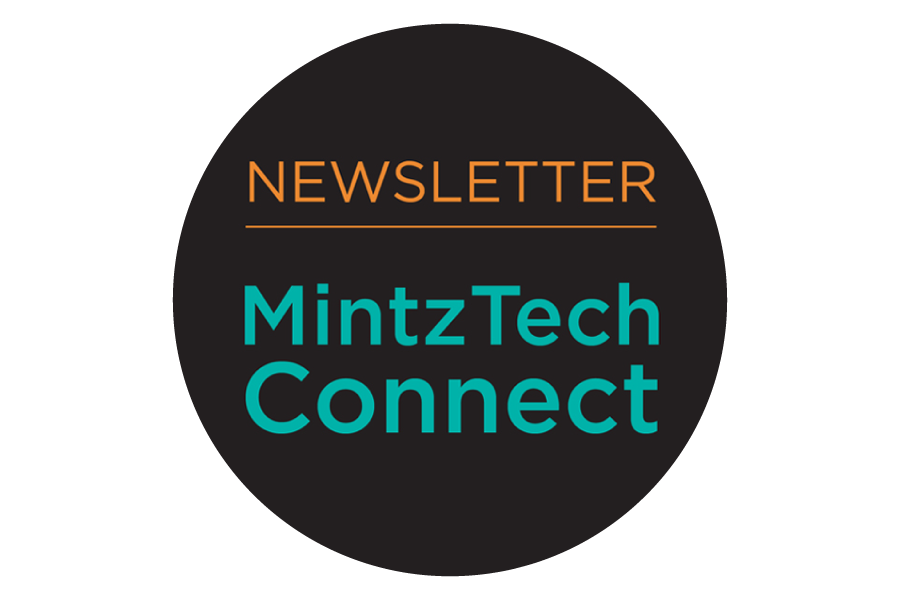CONTENT CENTER

SAFEs: The (Not So) Simple Agreement for (Potential) Future Equity
By Dan DeWolf and Brian Novell
Historically, most start-up companies were funded either by the offering of equity or by loans in the form of convertible promissory notes. Recently, however, there have been some hybrid instruments created to fund start-ups. Most notably, and quite popular these days, is the use of an instrument called a SAFE. “SAFE” is an acronym for “simple agreement for future equity.”

MintzTech Connect: All Things Technology — September 2017
By Dan DeWolf and Samuel Effron
This edition covers SAFEs, immigrant entrepreneurs, and a recent tax decision that may affect investment planning.

FTC Asked to Investigate Google’s Matching of “Bricks to Clicks”
By Cynthia Larose and Brian Lam
Recently, the Electronic Privacy Information Center (“EPIC”) asked the FTC to begin an investigation into a Google program called “Store Sales Management.” The purpose of Store Sales Management is to allow for the matching goods purchased in physical brick and mortar stores to the clicking of online ads, or as we refer to the practice, “Bricks to Clicks.”

The FTC’s Uber Consent Order: A Warning to Fast-Growing Companies
By Cynthia Larose and Brian Lam
Recently, Uber agreed to a proposed Federal Trade Commission (FTC) consent order (“Consent Order”) to settle charges in an FTC complaint (“Complaint”) regarding behavior stemming back to at least 2014. Acting Chairman Maureen K. Ohlhausen has stressed the implications this has for other companies:

Key Considerations for Adopting Ephemeral Communications Tools
By Adam Lenain
The combination of emerging technologies, information security risks and electronic discovery obligations continues to give rise to questions regarding best practices for adoption of modern ephemeral communication tools in lieu of more traditional forms of communication, particularly in the context of probable or pending litigation. Many businesses now employ various instant messaging systems, and employees routinely send work-related text messages and interact over collaboration applications--some of which enable automatic, or time of life, expiration and deletion of information (referred to as “ephemeral” communication).

MintzTech Connect: All Things Technology — June 2017
By Dan DeWolf and Samuel Effron
We are thrilled to provide you with the first issue of Mintz Levin’s TechConnect, a bi-monthly newsletter on “all things technology” in the legal and business world, from our perspective, of course.
The Gig Economy, Independent Contractors, and New York Law
The gig economy (on-demand work) is a disruptive factor in many industries, including the housing market (Airbnb, Homeaway), transportation services (Uber, Lyft, Juno, Via), delivery services (Postmates, Caviar, Instacart), and beauty services (Glamsquad, The Glam App). Time Magazine conducted a study which revealed that more than 90 million U.S. adults have participated in the gig economy, with at least 45 million U.S. adults earning income as a provider ofThe Gig Economy, Independent Contractors, and New York Law such goods or services.

MintzTech Connect: All Things Technology — March 2017
By Dan DeWolf and Samuel Effron
This issue of TechConnect focuses on the feasibility of obtaining software patents and introduces a novel approach to founder’s equity.

Software Is Still Patent Eligible
By Mike Van Loy, Mike Renaud, Sandra Badin, Matt Karambelas, and Nick Mouton
In recent years, software patents have come under fire from legislation (the American Invents Act) that has generally made patents easier to invalidate, and from court decisions (the Supreme Court’s decision in Alice v. CLS Bank[1] and its progeny) that have made computer-implemented inventions more vulnerable to subject matter eligibility challenges.

Term Sheets For Startups - Why Term Sheets Change Everything
Watch Jeremy Glaser discuss how term sheets change the entire balance of power and negotiations. Find out why your singular focus should be on getting a term sheet, whatever its terms.

Building a Startup Team - "Smartest Person in the Room" Syndrome
Watch Jeremy Glaser discuss how building a team with various skills is a recipe for success.

How to Raise Money
By Marc Andreessen, Ron Conway, and Parker Conrad
A panel Q&A on Fundraising in this lecture with Marc Andreessen, Founder of Netscape and Andreessen Horowitz, Ron Conway, Founder of SV Angel, and Parker Conrad, Founder of Zenefits.

Various Ways to Raise Capital
By Dan DeWolf
The world of raising capital has been evolving over the last several years. Offerings of securities generally used to fall into two main buckets: (i) private placements under the old Rule 506 or (ii) a public offering. With the implementation of various provisions of the JOBS Act now mostly complete, the array of choices has increased exponentially and include crowdfunding, crowdsourcing by general solicitation for accredited investors, IPO light under the new Reg A+ rules, and confidentially submitted initial public offerings. No one size fits all and issuers, bankers, and legal counsel should look carefully as to the context of the situation to determine which format makes the most sense for a particular offering. We thought it might be helpful to provide a chart of the various alternatives for offerings now available.

Regulation Crowdfunding: A Six-Month Update
It has been almost seven months since issuers across the country began raising money through Regulation Crowdfunding (“Reg CF”), which went into effect on May 16, 2016. In the six months since Reg CF went into effect, 160 initial filings for crowdfunding offerings on Form C were made with the SEC. The following summary of the highlights and trends are based on data collected from those Form C filings through November 16, 2016.

Revised Rule 504: Another Tool in the Toolkit to Raise Capital
By Dan DeWolf and Brian Novell
If there is one common theme that entrepreneurs tend to have, it is fire – meaning, many entrepreneurs are passionate about an exciting idea that they seek to turn into a business. However, entrepreneurs often quickly realize that, in order to make their fire glow high and bright for the world to see, they need fuel – meaning, capital.



FinTech Innovation Lab: A Resource for Fintech Start-ups
Co-founded in 2010 by Accenture and Partnership for New York City, the FinTech Innovation Lab, offers newly-emerging financial technology companies the opportunity to participate in a 12-week mentorship program. During the program, participants are invited to engage in a multitude of events including workshops, panels, and meetings with leaders in the financial technology industry.


Preparing for an Exit: Selling Your Drone Company
By Marc Mantell
Just as each warehouse logistics robot or copter-drone will utilize different technologies to address unique problems, each robotics company will follow a unique path to its eventual exit transaction. For those considering a company sale, there are several things you can focus on early in the process that can help give you the best chance of success.
View our full collection of blogs from Mintz by topic






